BMI vs. Body Fat
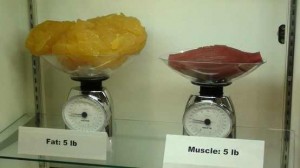 There are plenty of ways to get an idea of your current health status, and before I even get into the topic of BMI vs Body Fat – I just want to set a big ole disclaimer out there, that – I am not a professional physician or dietician. My views and opinions are based on my own experiences and you should always consult your doctor on matter of health concerns.
There are plenty of ways to get an idea of your current health status, and before I even get into the topic of BMI vs Body Fat – I just want to set a big ole disclaimer out there, that – I am not a professional physician or dietician. My views and opinions are based on my own experiences and you should always consult your doctor on matter of health concerns.
While you may have some concerns that only the doc can test for, most people know if they need to lose a few pounds. You dont need a doctor to tell you that (or maybe you are hard headed and you do need a doc to tell you that, lol)
One of the best ways to asses your current physical “condition” is by having some sort of number or “baseline” to go by and measure your progress against. And there are a few ways you can establish your current baseline which is what we are discussing today…Some say that the BMI is what you should go by while others say that you should be measuring body fat. And so the debate of BMI vs body fat begins!
…I will get into my opinions on both but first, lets establish what you are establishing when measuring BMI and body fat.
BMI vs Body Fat: What is BMI and Body Fat?
According to the CDC, BMI is defined as such: http://www.cdc.gov/healthyweight/assessing/bmi/adult_bmi/
“Body Mass Index (BMI) is a number calculated from a person’s weight and height. BMI is a fairly reliable indicator of body fatness for most people. BMI does not measure body fat directly, but research has shown that BMI correlates to direct measures of body fat, such as underwater weighing and dual energy x-ray absorptiometry (DXA).1, 2 BMI can be considered an alternative for direct measures of body fat. Additionally, BMI is an inexpensive and easy-to-perform method of screening for weight categories that may lead to health problems.”
And according to wikipedia, body fat percentage is defined as such: http://en.wikipedia.org/wiki/Body_fat_percentage
“The body fat percentage of a human or other animal is the total mass of fat divided by total weight; body fat includes essential body fat and storage body fat. Essential body fat is necessary to maintain life and reproductive functions. The percentage of essential body fat for women is greater than that for men, due to the demands of childbearing and other hormonal functions. The percentage of essential fat is 2–5% in men, and 10–13% in women.”
…but which method of measurement is the one you want to be using?
BMI vs Body Fat: In My Opinion…
When it comes to using the “BMI vs body fat” measurements, it is my opinion that BOTH methods prove to help in determining your baseline.
Let me go into some more detail…
…What Does measuring BMI offer?
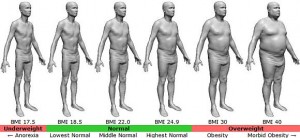 Measuring your BMI offers an inexpensive method of screening for weight risks – it is not a tool to diagnose anything though. Thats what doctors and health professionals are for. Further testing beyond BMI would include measurements of body fat percentage, dietary history, exercise patterns, and family history.
Measuring your BMI offers an inexpensive method of screening for weight risks – it is not a tool to diagnose anything though. Thats what doctors and health professionals are for. Further testing beyond BMI would include measurements of body fat percentage, dietary history, exercise patterns, and family history.
Furthermore, BMI does not take into account age, gender, or muscle mass. It also cannot tell you the difference between lean body mass and fat. So lets say you have done a few rounds of P90X and you just finished a round of Body Beast…Most likely you are more muscular than the average Joe and you may have a high BMI according to BMI calculators even though you don’t have a high percentage of body fat. On the other hand, take elderly people for example…Their BMI might appear “normal” but they have experience severe muscle deterioration over time.
Knowing your BMI is a good general guideline for health factors. If you want to go deeper though, you need something more precise!
…What does measuring body fat offer?
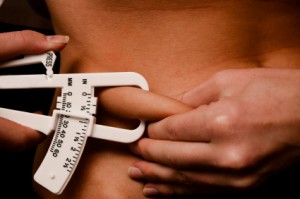 This is where knowing your body fat percentage comes in. When you know your body fat composition, you have something measurable to compare your progress too. If you are making progress, this number will always be going down until you hit your goal. With a BMI calculator, you might see no change at all while you are losing fat and building lean muscle mass – since BMI cant tell the difference between the two!
This is where knowing your body fat percentage comes in. When you know your body fat composition, you have something measurable to compare your progress too. If you are making progress, this number will always be going down until you hit your goal. With a BMI calculator, you might see no change at all while you are losing fat and building lean muscle mass – since BMI cant tell the difference between the two!
“Starting a health and fitness journey without something to measure against is like planning a trip without a starting address”
It has always been my experience that measurement = motivation and when you can see the numbers changing and you can see the hard work paying off…it makes the repetitiveness of it all very gratifying!
“I just want to be healthy” is NOT a solid baseline for measurement!
My Final Thoughts on “BMI vs Body Fat”
As I said before, BMI is great because its a super inexpensive way to measure weight risks. What it lacks though in its definition is something that you can measure against with a degree of accuracy. When you measure your body fat percentage, you have a clear measurable number of something that you always want to see decreasing to healthy levels. BMI can remain the same if you are increasing muscle mass and losing body fat…This does not provide you with an accurate progress report.
The same could be said of the bathroom scale. The scale cant tell you that you lost 3lbs of body fat and gained 3lbs of lean muscle mass…all you see is no progress…that is why measuring your body fat is a superior method to measuring your progress in my opinion!
…Now you just have to take action! First things first is to learn the nuts and bolts of exchanging body fat for lean muscle mass which is what I teach you in my FREE 5 Day Bootcamp. It will not only teach you the HOW of getting extreme results, but you are actually going to learn how to PREVENT FAILURE! So enter your name and best email HERE to get your Day-1 Video!
DIG DEEPER and inspire others to do the same!
Coach Todd
PS – If this article on BMI vs body fat was helpful, go ahead and LIKE/SHARE this post via Facebook, Twitter, or Google+. This will help get this info into the hands of people who are looking for it! I really appreciate you being a part of helping us “End The Trend of Obesity”.
Related Posts


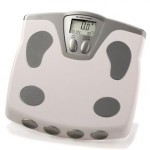



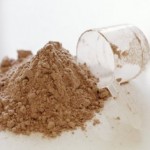








Recent Comments